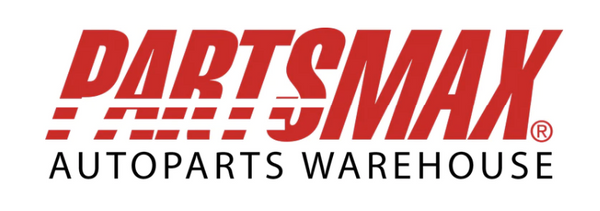Boost Your Car's MPG With These Mechanical Upgrades
BOOST YOUR CAR'S MPG WITH THESE MECHANICAL UPGRADES
With steadily rising gas prices putting a strain on budgets, drivers everywhere are looking for ways to spend less at the pump. While modifying your driving habits helps, there are also several ways on how to improve gas mileage mechanically. These DIY mechanical upgrades can make to increase your vehicle's fuel efficiency.
Bolt-on parts like air intakes and exhaust systems, along with components like low rolling resistance tires and synthetic oils allow your engine to operate more efficiently. Lower friction means better combustion and less wasted energy. Upgraded ignition and cooling components also help optimize engine function.
Here are 9 mechanical upgrades to consider squeezing more miles out of every gallon:
REAP THE ROLLING RESISTANCE BENEFITS OF PREMIUM TIRES
Your tires are the only part of your car that touch the road, so they play a major role in overall efficiency. All tires exhibit a phenomenon called hysteresis, where energy is lost due to deformation as the tire rolls and flexes along the pavement. Low rolling resistance tires minimize this energy-wasting flex through optimized construction and materials.
These tires use a combination of specialized rubber compounds and computer designed tread patterns to limit deformation. Stiffer sidewalls resist squishing to maintain their shape. Dual tread compounds reduce friction against the road surface. Every aspect of low rolling resistance tires is engineered to slice through the air and roll easier.
The net result is that your engine doesn't have to work as hard to turn what essentially becomes an easier rolling wheel and tire unit. Reduced resistance means improved economy. Just switching to low-rolling resistance tires can boost your highway fuel efficiency by 3-5% or more. With gas prices continuing to rise, this simple upgrade pays for itself quickly in fuel savings.
KEEP YOUR ENGINE RUNNING SMOOTHLY WITH FULL SYNTHETIC OIL
The right motor oil goes a long way in keeping your engine running smoothly and efficiently. Synthetic oil offers key advantages over conventional oils when it comes to reducing internal friction and drag. The slick molecular composition and uniform structure of synthetic oil makes it more resistant to viscosity breakdown at temperature extremes.
Full synthetic oils flow with less resistance when cold, allowing for easier startups and faster lubrication of critical components. This minimizes engine wear in the crucial startup phase. At higher operating temperatures, synthetics maintain optimum viscosity to keep things slippery and prevent metal-on-metal grinding inside your engine. Whether cold or hot, synthetics reduce friction better than old fashioned petroleum based oils.
Synthetics also offer improved cleaning and sludge prevention. Detergent additives suspend more contaminants so they can be filtered out. Lower buildup keeps moving parts operating smoothly. With less friction and drag, your engine doesn't have labor as hard - improving combustion efficiency and fuel economy. Make the switch to full synthetic for an immediate MPG boost.
FREE UP AIRFLOW WITH A COLD AIR INTAKE
Restrictive air intake components choke airflow into your engine and prevent optimal combustion. Simply replacing a dirty, clogged paper filter allows more air into the engine. But the best gains come from upgrading to a performance cold air intake system.
These systems replace the factory airbox and paper filter with a free-flowing reusable filter enclosed in a custom housing. Cold air intakes pull in cooler, denser outside air. Optimized filter materials and housing designs smooth the path for maximum airflow.
More air mixing with fuel means better combustion and more complete burning of the air-fuel charge. The ECU can then optimize spark timing and fuel injector pulse width for a more ideal mixture. Like giving your engine a deep breath, a cold air intake lets it inhale stronger. Along with improved throttle response and power, you also get better fuel mileage from superior engine breathing.
IMPROVE EXHAUST FLOW
A less restrictive exhaust system that reduces backpressure helps the engine breathe out spent gases more easily. Pairing upgraded diameter pipes and free-flowing mufflers with a tune optimized for efficiency can limit wasted energy pushing exhaust out of the engine.
REDUCE WEIGHT WHERE POSSIBLE
Since lighter vehicles require less power to accelerate and stop, reducing weight takes some load off your engine. Look for ways to remove unnecessary mass by swapping heavy stock components for lightweight aftermarket parts. Lighter wheels, speakers, suspension parts and accessories all contribute to better efficiency.
UPGRADE IGNITION COMPONENTS
Worn out ignition components like spark plugs and wires force your engine to work harder to burn fuel. Premium plugs and low resistance wires make for easier starts and complete combustion of the air/fuel mixture. Efficiency oriented ignition upgrades help your engine do more with less gas.
ADJUST GEARING FOR HIGHWAY DRIVING
Regearing differentials or upgrading your transmission can limit engine rpm while cruising on the highway. Keeping your engine speed lower while maintaining your desired speed reduces load and internal friction at sustained highway speeds.
SWITCH TO ELECTRIC COOLING FANS
Mechanical engine fans constantly leech power even when cooling isn't needed. Electric fans only run when activated, reducing parasitic load. Their on-demand operation and precise temperature control also improves overall cooling system efficiency.
REDUCE BRAKE DRAG
Sticking brake calipers and contaminated brake components create mechanical drag that forces your engine to work harder to overcome. Reducing friction in your brake system minimizes wasted energy from drag. Upgraded pads and rotors also allow for easier rolling and fuel-saving engine braking.
With gas prices continuing to pinch budgets, mechanical upgrades can help maximize your car's miles per gallon. Start with more affordable bolt-on parts like air intakes, oil, and ignition components to realize some gains right away. Combine several upgrades to reduce friction and parasitic loss for the best improvement in fuel efficiency. Investing in these mechanical modifications will help you spend less filling up at the pump.



